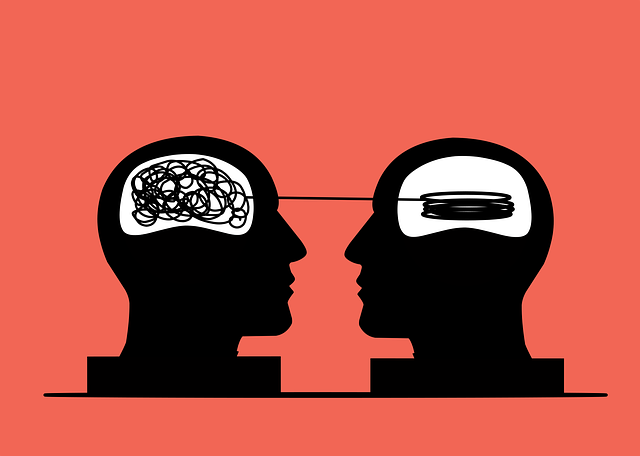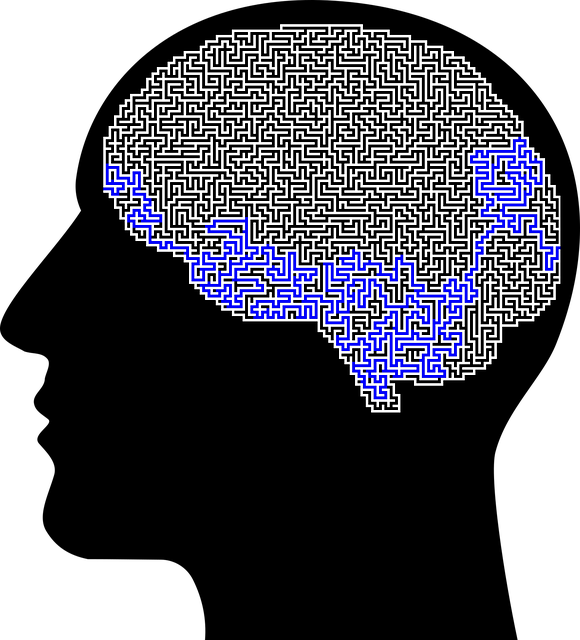Denver French Speaking Therapy (DFST) offers a culturally sensitive approach to mental health care, addressing the unique needs of Denver's Francophone community. By providing therapy in French and incorporating cultural sensitivity training for therapists, DFST breaks language barriers and promotes trust. This specialized service enhances emotional intelligence, improves mood management, and builds resilience. It ensures that mental healthcare is accessible, tailored, and inclusive, fostering an environment where French-speaking individuals feel supported on their journey to healing and wellness.
In today’s diverse society, cultural sensitivity is paramount in mental healthcare. Understanding and navigating cultural nuances can significantly enhance therapeutic outcomes. This article explores the critical aspect of cultural sensitivity, focusing on unique approaches like Denver French Speaking Therapy. We delve into challenges and benefits, offering strategies for effective cross-cultural communication. By embracing these practices, mental health professionals can create inclusive environments, fostering better connections with clients from diverse backgrounds, including those who speak French.
- Understanding Cultural Sensitivity in Mental Healthcare
- Denver French Speaking Therapy: A Unique Approach
- Challenges and Benefits of Culturally Responsive Practice
- Strategies for Effective Cross-Cultural Communication
Understanding Cultural Sensitivity in Mental Healthcare

In the diverse landscape of mental healthcare, cultural sensitivity is a cornerstone that ensures effective and compassionate treatment for all individuals. It involves recognizing and appreciating the unique cultural backgrounds, values, and beliefs of patients, especially in communities like Denver’s vibrant French-speaking population. For instance, a therapist with Denver French speaking therapy expertise can bridge the gap between cultural barriers, making mental health services more accessible and tailored to specific needs. This approach is crucial in fostering trust, encouraging open communication, and promoting understanding during the therapeutic process.
Cultural sensitivity enhances emotional intelligence by enabling healthcare providers to recognize non-verbal cues, interpret cultural nuances, and respond appropriately. It facilitates better mood management and resilience building within diverse communities, ensuring that mental health interventions are respectful and relevant. By embracing cultural diversity, mental healthcare practices can create an inclusive environment where everyone feels heard, understood, and supported on their journey towards healing and wellness.
Denver French Speaking Therapy: A Unique Approach

In Denver, a unique and culturally sensitive approach to mental healthcare has emerged—the Denver French Speaking Therapy (DFST). This specialized service caters to the growing Francophone community, addressing their specific needs and challenges in accessing mental health support. The DFST model recognizes the impact of cultural background on therapy, ensuring that language and cultural barriers are broken down. By offering therapy sessions conducted entirely in French, this approach allows individuals from diverse backgrounds to receive personalized care tailored to their linguistic preferences.
This innovative practice goes beyond traditional therapy by incorporating elements of risk management planning for mental health professionals. It aims to prevent burnout among healthcare providers while enhancing stress management techniques. Through DFST, therapists not only facilitate effective communication but also foster a safe and supportive environment, acknowledging the complex issues that may arise when navigating different cultural and linguistic contexts. This unique initiative showcases a progressive approach in mental healthcare, emphasizing the importance of cultural sensitivity and personalized treatment.
Challenges and Benefits of Culturally Responsive Practice

Incorporating culturally responsive practices into mental healthcare offers both significant challenges and profound benefits. One of the main obstacles is ensuring that therapists are educated and trained in cultural sensitivity, especially when working with diverse populations like Denver French-speaking communities. This involves learning about different cultural beliefs, values, and communication styles to avoid stereotypes and biases that may hinder effective therapy. For instance, some cultures may prioritize family involvement or have unique approaches to expressing emotions, which must be respected for genuine connection.
Yet, the advantages are immense. Culturally responsive practice fosters an environment where individuals from diverse backgrounds feel understood and welcomed. It improves access to mental healthcare by making services more inclusive and adaptable. For French-speaking individuals in Denver, this could mean offering therapy sessions in their native language, incorporating cultural references they relate to, and providing guidance on mindfulness meditation or mental wellness journaling exercises tailored to their needs. Such personalized approaches not only enhance therapeutic outcomes but also build trust and encourage open communication.
Strategies for Effective Cross-Cultural Communication

Effective cross-cultural communication is a cornerstone for delivering compassionate and competent mental healthcare to linguistically diverse populations, such as Denver’s French-speaking community. Therapists can foster an inclusive environment by actively listening, avoiding assumptions based on cultural stereotypes, and demonstrating empathy towards patients’ unique backgrounds. Bilingual or culturally competent therapists play a vital role in bridging communication gaps, ensuring accurate interpretation of symptoms, and providing relevant coping skills development tailored to the individual’s cultural context.
Integrating cultural sensitivity into practice extends beyond language proficiency. It involves knowledge of diverse mental health beliefs and practices, as well as an understanding of how social determinants of health can impact mental wellness. For French-speaking individuals, access to culturally responsive therapy can significantly enhance treatment outcomes. This may include encouraging patients to share personal narratives through Mental Wellness Journaling Exercises, or advocating for policies that support equitable mental healthcare delivery within the community (Mental Health Policy Analysis and Advocacy).
In light of the diverse cultural backgrounds of individuals seeking mental healthcare, cultivating cultural sensitivity is paramount. The article has explored this topic through various lenses, including the unique approach of Denver French-speaking therapy, highlighting its benefits in addressing specific cultural needs. By understanding and implementing culturally responsive practices, mental health professionals can enhance cross-cultural communication, overcome challenges, and provide more inclusive care. Embracing these strategies ensures that everyone receives the supportive, effective treatment they deserve, regardless of their cultural background or language preference, such as Denver French-speaking therapy offers.














